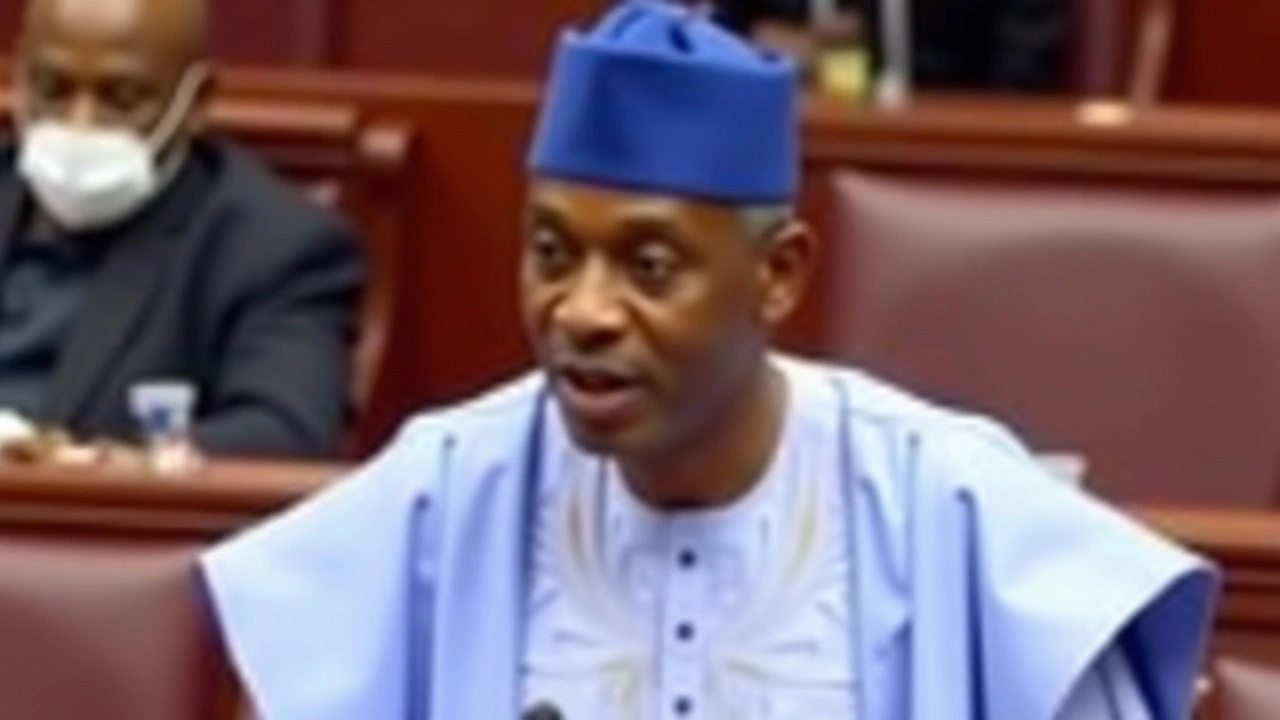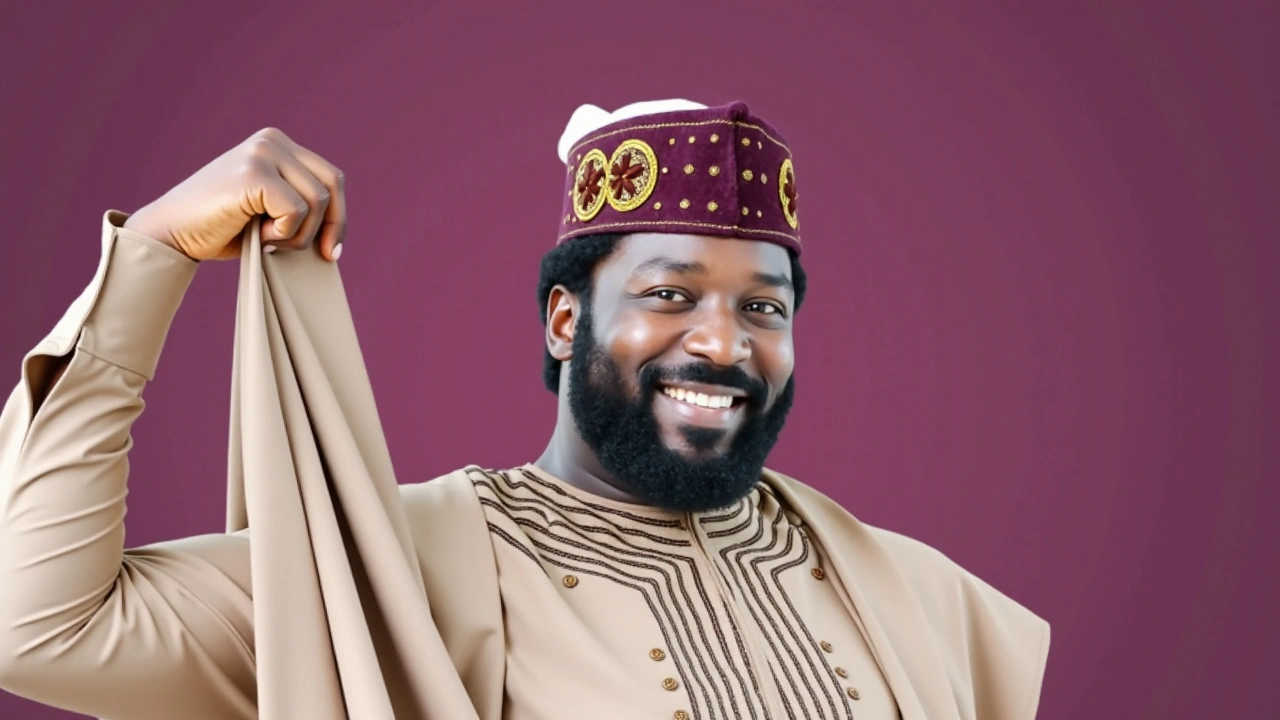Desmond Elliot's Response to Allegations of Being Gay
Desmond Elliot, renowned for both his acting prowess in Nollywood and his active role as a legislator in the Lagos State House of Assembly, has recently been the subject of allegations related to his sexual orientation. Elliot, who has played a significant role in Nigerian entertainment and now serves as the representative of Surulere Constituency 1, was mentioned by a blogger in a list of prominent Nigerians speculated to be involved in same-sex relationships. In the midst of this media frenzy, Elliot's reaction was one of composure and assertiveness, choosing to dismiss the rumors entirely. In a candid conversation with TVC, he labeled the allegations as nothing more than "malicious gossip" and firmly declared that there was no reason for him to lend them any credence.
For Elliot, the foundation of his perspective rests on the belief that rumors and unfounded allegations do not possess the power to alter the core of his existence nor impede on his mission as a public servant. He reiterated his stance that his life's work is about fostering positive change and making impactful contributions to the lives of his constituents, rather than being entangled in discussions about unwarranted and baseless accusations. A prominent aspect of Elliot's response was his clear declaration of his sexuality, emphasizing, "I am straight. You can never have anyone straighter than me." This statement was not just an expression of his identity, but also a reaffirmation of his commitment to transparency.
The Context of Allegations in Today's Society
The issue of homosexuality, particularly within Nigeria and among public figures, remains a polarizing topic. The country, where cultural and religious values are deeply intertwined, often finds its public figures at the crossroads of personal beliefs and societal expectations. Speculation about a celebrity's personal life is not uncommon; however, for Elliot, the focus must always return to the principles of individual freedom and respect for the law. He eloquently underscored the idea that "as long as you are affecting people positively and doing things within the confines of the law, that is what truly matters."
Elliot has always been an advocate for people being their true selves, stating that identity and expression are deeply personal and subjective matters. His approach is one that embraces the belief that everyone should have the liberty to identify as they wish, provided it is respectful and lawful. This view resonates with the broader discourse on human rights, emphasizing empathy and coexistence.

The Impact of Personal Integrity in Politics
For a politician like Desmond Elliot, maintaining personal integrity and staying true to one’s principles is pivotal. Not only does it establish a trusted relationship with the electorate, but it also sets a positive precedent for future political aspirants. Elliot's insistence on not engaging with baseless accusations is reflective of his priorities, which center around the betterment of his community and maintaining focus on legislative duties. Raising awareness about integrity and public service over personal gain, Elliot serves as a role model to many just stepping into the realm of political leadership.
In responding to these accusations in such an unperturbed manner, Elliot draws attention to a larger narrative—one that discourages the spread of false information and encourages society to place more emphasis on substantial matters. His unwavering belief in transparency and authenticity, both in his professional commitments and personal declarations, stands as a testament to his character.
Conclusion: A Message Beyond Rumors
The discourse initiated by Desmond Elliot provides a message deeper than the allegations themselves. It illuminates an essential dialogue, one about authenticity, lawful expression, and focus on societal development over sensationalist gossip. As an influential persona straddling the realms of entertainment and politics, Elliot demonstrates how pivotal it is for public figures to maintain a balanced perspective between dealing with public scrutiny and personal serenity. His choice to brush off the rumors with confidence and a touch of humor is a lesson in embracing one's individuality while continuing to forge paths for positive community impact.
The narrative that unravels through Elliot's story encourages the public not only to question the validity of speculative narratives but also to consider how baseless rumors should be addressed. Through his calm demeanor and sincerity, Elliot emerges as a figure who prioritizes progress over personal vindication, making him a figure people can respect and rally behind.

Abhijit Pimpale
November 10, 2024 AT 02:42The allegations lack substantive evidence and therefore should be dismissed as irrelevant to legislative performance.
Eric DE FONDAUMIERE
November 10, 2024 AT 08:15Great move by Elliot to stay focused on his constituency! He shows that personal gossip can't derail public servic. Keep pushing forward!
Pauline Herrin
November 10, 2024 AT 13:48While Mr. Elliot's composure is commendable, it is essential to consider the broader implications of unverified claims on public trust. The discourse surrounding personal matters must be rooted in factual verification rather than speculation. Moreover, the legal framework in Nigeria provides clear guidance on handling defamation. Officials ought to leverage these mechanisms to protect both their reputation and the integrity of the office. It remains prudent for any public figure to address rumors directly rather than allowing them to fester.
pradeep kumar
November 10, 2024 AT 19:22Elliot's focus on legislative duties over gossip sets a practical example for peers. Personal rumors are distractions that serve no constructive purpose. Maintaining a concise agenda benefits constituents. The political arena is better served when the dialogue remains policy‑centric.
love monster
November 11, 2024 AT 00:55Elliot's approach can be deconstructed through a stakeholder‑centric lens, illustrating the efficacy of issue‑framing in political communication.
By isolating the rumor as a low‑impact variable, he preserves the high‑impact trajectory of his legislative agenda.
His narrative aligns with the governance model of outcome‑based performance metrics, thereby reinforcing accountability.
The omission of emotional rebuttal serves to minimize noise in the information ecosystem.
From a public policy standpoint, this tactic conserves bandwidth for substantive debate.
Strategically, it leverages the principle of signal versus noise, ensuring that the electorate receives a clear, unambiguous message.
Furthermore, his assertive declaration of sexual orientation functions as a preemptive counter‑measure against rumor propagation.
Such a maneuver reduces the probability of future defamation incidents by establishing a factual baseline.
In the context of media dynamics, this approach mitigates the amplification effect often observed in viral gossip cycles.
Operationally, it enables his team to allocate resources toward constituency services rather than crisis management.
The rhetorical economy displayed here reflects a deep understanding of narrative control.
When analyzing the sociopolitical impact, one can observe a reinforcement of trust metrics within his voter base.
It also sets a precedent for other officials navigating personal scrutiny.
By prioritizing transparency, Elliot contributes to a culture of openness that benefits democratic processes.
Finally, the consistency of his messaging across platforms underscores the importance of brand alignment in political stewardship.
Christian Barthelt
November 11, 2024 AT 06:28The dismissal of baseless rumors is a logical safeguard for any public servant.
However, the media ecosystem often amplifies such claims, necessitating a proactive communication strategy.
Neglecting to address them thoroughly could inadvertently legitimize fringe narratives.
Ify Okocha
November 11, 2024 AT 12:02While the previous point raises a valid consideration, the core issue remains the absence of verifiable data.
Speculative narratives undermine the evidentiary standards that should govern public discourse.
Engaging with unsubstantiated claims only dilutes the focus on policy outcomes.
Therefore, a disciplined approach that foregrounds factual integrity is paramount.